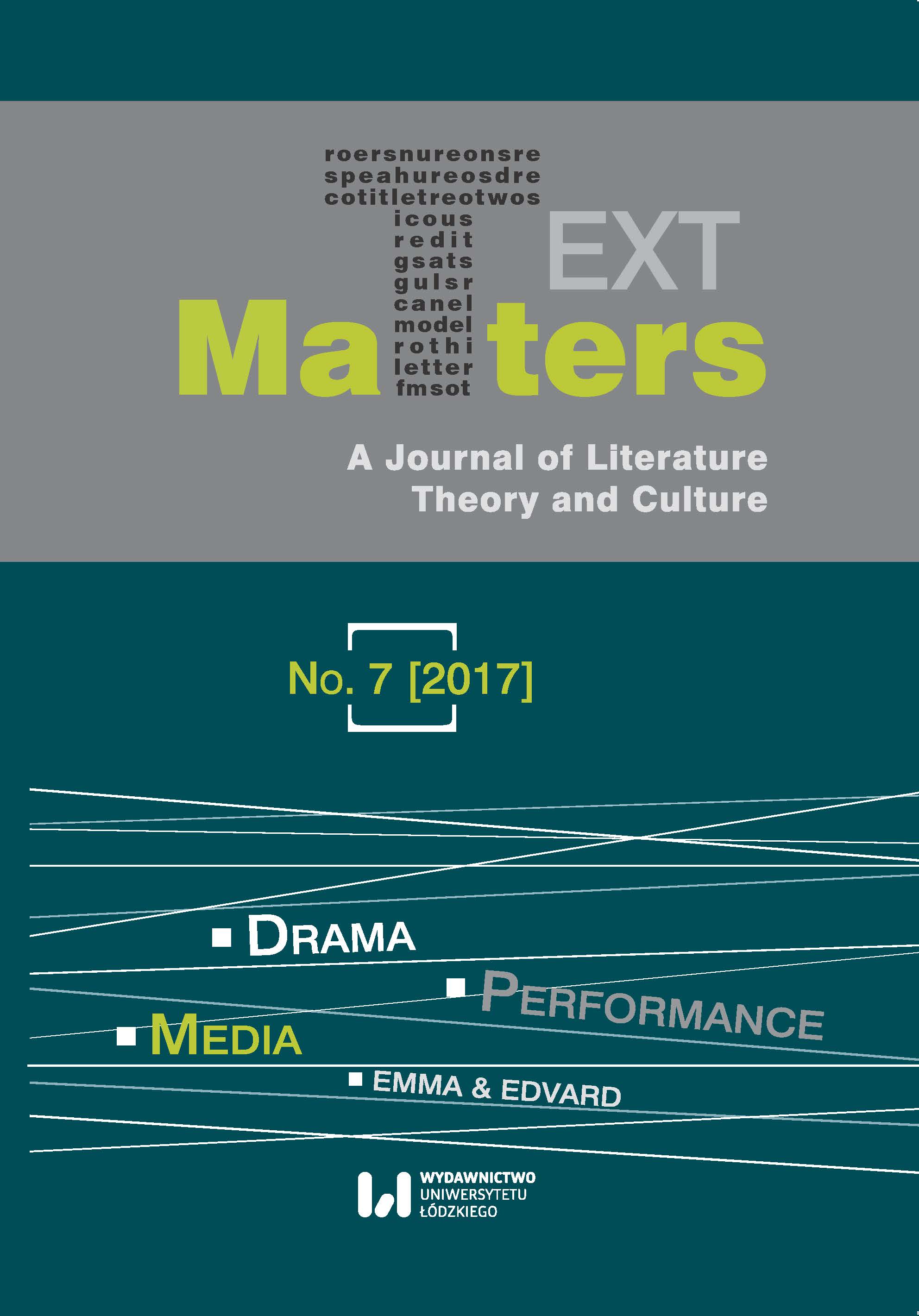Authority in Crisis? The Dynamic of the Relationship Between Prospero and Miranda in Appropriations of The Tempest
Authority in Crisis? The Dynamic of the Relationship Between Prospero and Miranda in Appropriations of The Tempest
Author(s): Magdalena CieślakSubject(s): Studies of Literature, Theory of Literature
Published by: Wydawnictwo Uniwersytetu Łódzkiego
Keywords: The Tempest; Julie Taymor; Philip Osment; Derek Jarman; fathers and daughters
Summary/Abstract: The relationship between Prospero and Miranda is fairly typical for Shakespeare’s way of portraying parental authority and filial obligation. A strong and authoritative father, an absent mother and a (potentially) rebellious daughter are character types reused in many of his plays. In The Tempest, authority, power and ownership, be it political or domestic, are important themes. In criticism, Prospero is frequently discussed through the prism of his attitude to his “subordinates”—Ariel, Caliban and Miranda—and the play’s narrative is interpreted in the context of the theatre of power. Parental authority, a social construct, is a dynamic thing, and the Renaissance patterns discernible in Shakespeare’s plays are refashioned and changed in contemporary adaptations and appropriations of his plays. Informed by New Historicism and Cultural Materialism in relation to gender studies, this article seeks to examine the changing dynamics of the Prospero-Miranda relationship in three films—Derek Jarman’s (1979), Paul Mazursky’s (1982), and Julie Taymor’s (2010)—as well as Philip Osment’s 1988 play This Island’s Mine. Focusing on the issue of authority, power and ownership, the article aims at showing how stereotypical social and gender roles resonate with various political contexts of power.
Journal: Text Matters: A Journal of Literature, Theory and Culture
- Issue Year: 2017
- Issue No: 7
- Page Range: 161-182
- Page Count: 22
- Language: English

